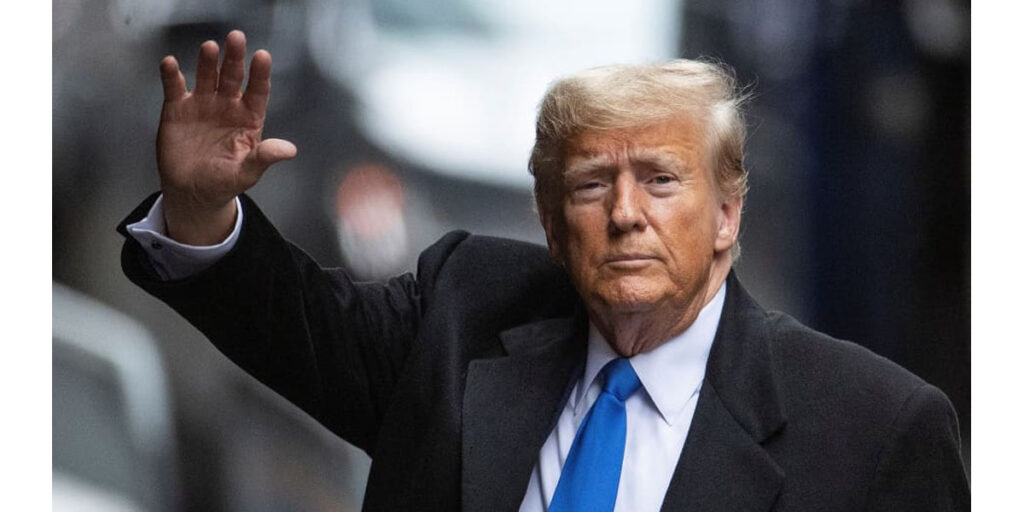As anticipated, Donald Trump has torn through all of his opposition, and despite claims by a desperately clinging on Nikki Haley, he is the presumptive nominee for the GOP. But could the former president’s January 6 trial hit before the election, and what could it mean for the Trump Train if it does?
While the former president had a resounding victory in Iowa, nearly a third of Republican caucusgoers told pollsters that Trump would not be “fit” for the presidency if he is convicted of a crime — a sizable defection that, if it held, could derail Trump’s general election chances. However, polling in this area is challenging, so it is best to take this figure with a considerable grain of salt. Some portion of these people, for instance, may believe Trump would literally be incapable of serving as president if convicted of a crime — perhaps because he would immediately be hauled off to prison or disqualified — which is not true, and which they would eventually come to learn if things moved in that direction.
Despite various indictments and accusations, the single most important case — for both political and legal reasons — is the Justice Department’s prosecution over Trump’s effort to overturn the 2020 election. As of this writing, that trial technically remains on the calendar for March 5, but the pretrial proceedings have been stayed while Trump pursues his bid to have the case dismissed on the theory that he is immune from criminal prosecution in the case, and the judge recently acknowledged that this date is almost certainly going to have to move. A panel of judges on the D.C. Circuit Court of Appeals heard oral argument on the issue earlier this month, though it is not clear when they will issue their ruling. After they do so, Trump could seek a rehearing before the whole court and, after that, an appeal to the Supreme Court itself.
If the Supreme Court ends up taking the appeal, it is unclear how long the justices would take to resolve the issue. Smith’s team indicated that its overarching objective is to have the Supreme Court hear the case and issue an opinion during its current term. The current term is likely to end in late June or early July. Assuming that they bow to pressure and do hear the appeal in this term, and assuming the rule against Trump’s claims of “ultimate immunity”, that leaves four full months between the end of June and Election Day on November 5. On paper, that is more than enough time for the trial to take place.
Smith’s team has said they anticipate their case against Trump taking four to six weeks. It is rare for criminal defendants to put on substantial or lengthy defense cases after the government rests, though Trump’s lawyers may claim they intend to do so, if for no other reason than to complicate the scheduling of the trial. This all means that there is a possibility that Trump will be on trial during the campaign and could be convicted before Election Day. If that happens and he is convicted, we will then find out in earnest what the actual political consequences are for Trump’s reelection effort.
